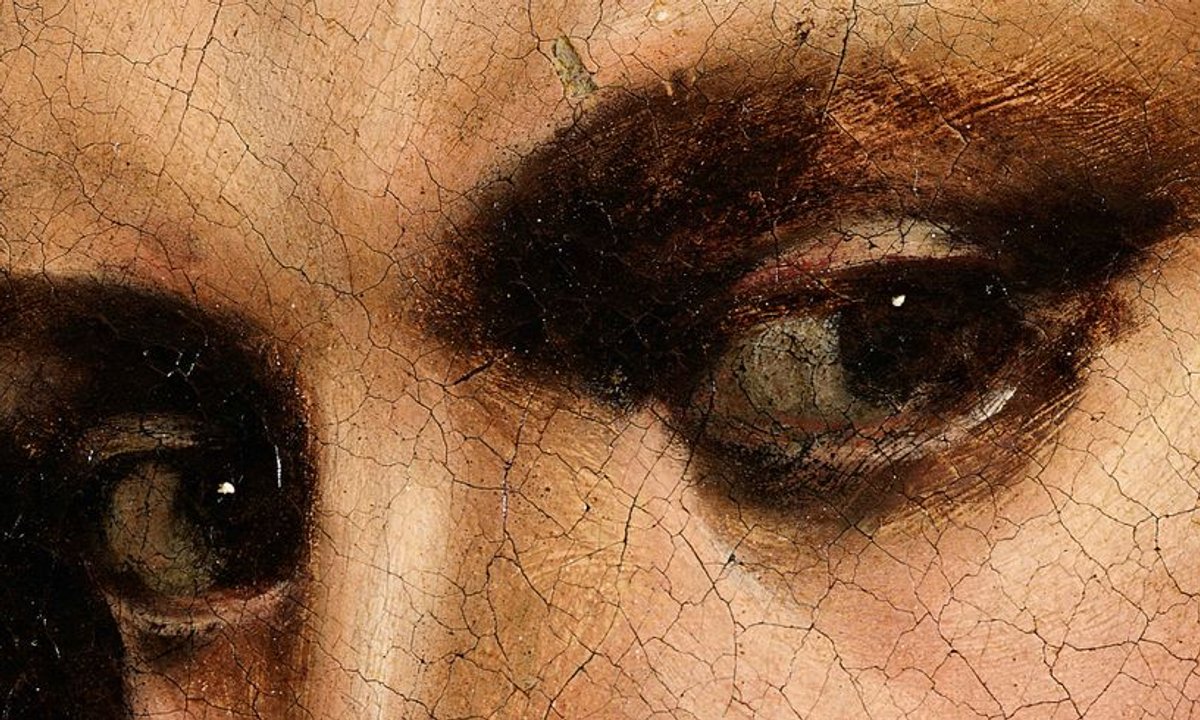Phenomena
2009 - Sculpture (Sculpture)
Yang Xinguang
Although seemingly unadorned at first glance, Yang Xinguang’s sculptural work Phenomena (2009) employs minimalist aesthetics as a means of gesturing towards the various commonalities and conflicts between civilization and the natural world. Comprised of rudimentary planks of wood hammered together into a rectangular form, Yang’s work uses reclaimed materials from everyday life and seems deliberately in conversation with Arte Povera, the art movement that originated in Italy during the late 1960s where practitioners produced art from found and common materials as an act of resistance against the decided commercialization of the art world through market economies. Yang, by extension, pays close attention to his materials in attempt to release the forms within them rather than impose his own. He rarely adds anything to the materials that he uses; instead, he chisels, pares and scrapes the excess away, allowing his completed works to emerge through a combination of happenstance and almost meditative handwork. In Phenomena , Yang’s handwork becomes apparent in a constellation-like form scratched into the wood. Suddenly, the nails and knots in the wood’s surface become vertices in a larger web of connecting lines, suggesting the inexorable interconnections between our alternately fabricated and naturally occurring environments. Rather than privileging one over the other, Yang’s work invites us to contemplate these relationships and how these coessential phenomena define our existence.
Yang Xinguang is an artist whose work explores the interconnections between the natural world fabricated materials in a post-industrialist society. His work is deliberately restrained and frequently uses reclaimed materials such as found wood planks, a gesture that recalls the Arte Povera movement’s commitment to using un-rarified and common materials in art making practice. His work is also deeply invested in exploring the phenomenological relationship between viewers and artworks, and his sculptural installations gesture towards Minimalist traditions, inviting viewers to pause and consider their own relationship to their surrounding space.
Colors:
Related works sharing similar palette

© » AMERICANSFORTHEARTS
Americans for the Arts Remembers Star of Film, TV, and Stage, Angela Lansbury | Americans for the Arts Jump to navigation Americans for the Arts Arts Action Fund National Arts Marketing Project pARTnership Movement Animating Democracy Facebook Twitter LinkedIn Instagram YouTube Load Picture Home News Room Americans for the Arts Remembers Star of Film, TV, and Stage, Angela Lansbury Hello Guest | Login Americans for the Arts Remembers Star of Film, TV, and Stage, Angela Lansbury Friday, October 14, 2022 Americans for the Arts mourns the loss of beloved Artists Committee member Dame Angela Lansbury , who passed away in her Los Angeles home on October 11, 2022, at the age of 96...

© » ARTS EQUATOR
"Jogging" To Survive: Hanane Hajj Ali at M1 Singapore Fringe Festival 2019 | ArtsEquator Thinking and Talking about Arts and Culture in Southeast Asia Articles Marwan Tahtah January 21, 2019 By Stephanie Burridge (800 words, four-minute read) Metaphors abound in this complex work about living, loving and surviving...

© » ARTS EQUATOR
"A Land Imagined" and The Ghosts We Forget | ArtsEquator Thinking and Talking about Arts and Culture in Southeast Asia Articles Photo courtesy of Akanga Film Asia & Philipp Aldrup Photography Photo courtesy of Akanga Film Asia & Philipp Aldrup Photography February 21, 2019 By Alfonse Chiu (1200 words, six-minute read) The three definitions of the word “ghost” from the Oxford dictionary are as follows: the first, “an apparition of a dead person which is believed to appear or become manifest to the living”; the second, “a slight trace or vestige of something”; and the third, “a faint secondary image caused by a fault in an optical system, duplicate signal transmission, etc.” In all three, presence is a suggestion of memory, amenable to corrections by means of a quick scrub of one’s spectacles...

© » KADIST
Amapola Prada
2013In Amapola Prada’s work Movement, we see three spotlit, female bodies lying inert in a darkened room, alongside three dressed, standing figures holding long, wooden spoons...

© » THEARTNEWSPER
New York Old Master sales deliver tepid results at Christie's and Sotheby's Art market Museums & heritage Exhibitions Books Podcasts Columns Technology Adventures with Van Gogh Search Search Art market news New York Old Master sales deliver tepid results at Christie's and Sotheby's Scattered seven-figure highlights failed to make up for dozens of passed lots and multiple key withdrawals Judd Tully 2 February 2024 Share Nardo di Cione, Madonna Annunciate; Archangel Gabriel (14th c.) Courtesy of Sotheby's The premier auctions among Christie’s and Sotheby’s winter sales of Old Master works in New York this week did little to counter concerns about the deteriorating market for the classics...

© » THEARTNEWSPER
Phillips's selling show of contemporary Indigenous art reflects surge in curatorial interest Art market Museums & heritage Exhibitions Books Podcasts Columns Technology Adventures with Van Gogh Search Search Art market news Phillips's selling show of contemporary Indigenous art reflects surge in curatorial interest Collectors’ enthusiastic response to 'New Terrains' exhibition is latest signal that the market is finally catching up Carlie Porterfield 9 February 2024 Share Death of Adonis (2009) was one of two paintings by Cree artist Kent Monkman in the Phillips show © Kent Monkman Just after ringing in the New Year, Phillips opened the doors of its Park Avenue headquarters for New Terrains , a selling exhibition of work by around 65 contemporary Indigenous artists from the US and Canada across seven decades...

© » KADIST
Jeff Burton
2013Negligee (2013) serves as an example of this tension, with its artful angle and play with shadow and light upon the sensual subject, rendering the image ambiguous...

© » KADIST
Haris Epaminonda
2007Haris Epaminonda’s work questions the manipulation and the flow of images as well as their power of fascination...

© » KADIST
Geof Oppenheimer
2011Designed as an installation timed spent is determined by the viewer, as with classical sculpture, Anthems is a piece that is in place, and in time, and an important genre of video within the collection...

© » KADIST
Proyecciones Espacio Odeón (Bogotá, Colombia) y Museo La Tertulia (Cali, Colombia) ¿Cómo enfrentamos la incertidumbre de estos tiempos? ¿Puede el juego, los sueños, o incluso las alucinaciones ayudarnos a imaginar otras posibles trayectorias? ¿Qué tipo de prácticas nos permiten relacionarnos con los territorios que habitamos? Tomando como punto de partida el potencial de lo inquietante en medio de una amenaza invisible, Sigo esperando es una serie de proyecciones en las fachadas del Espacio Odeón (Bogotá) y del Museo La Tertulia (Cali)...



![Pina Bausch, Germaine Acogny, and Malou Airaudo’s The Rite of Spring / common ground[s] by M Whiteford](https://s3.us-east-1.amazonaws.com/bomb-images/_1200x630_fit_center-center_82_none/The-Rite-of-Spring-Bausch.jpg?mtime=1702344370)






